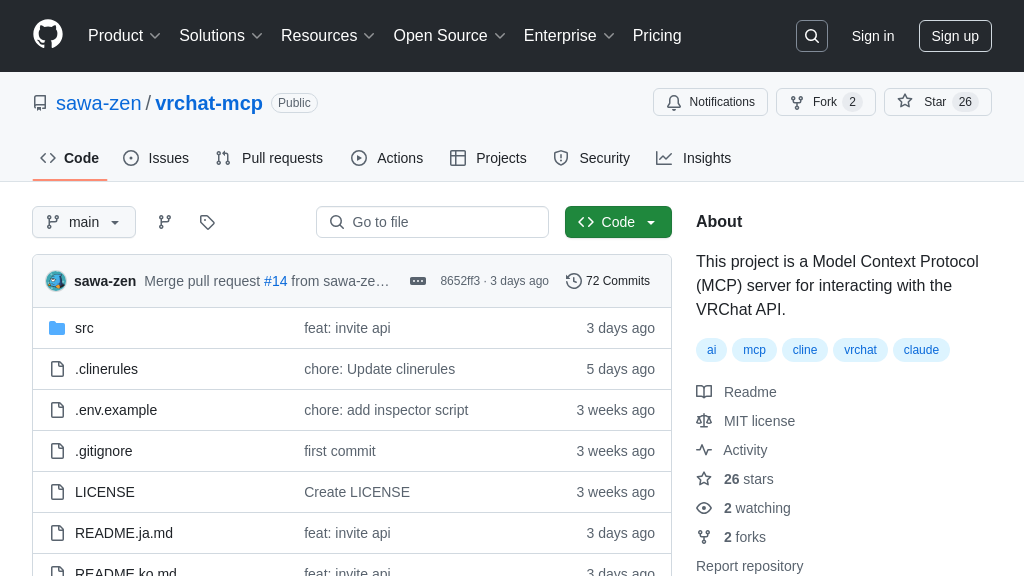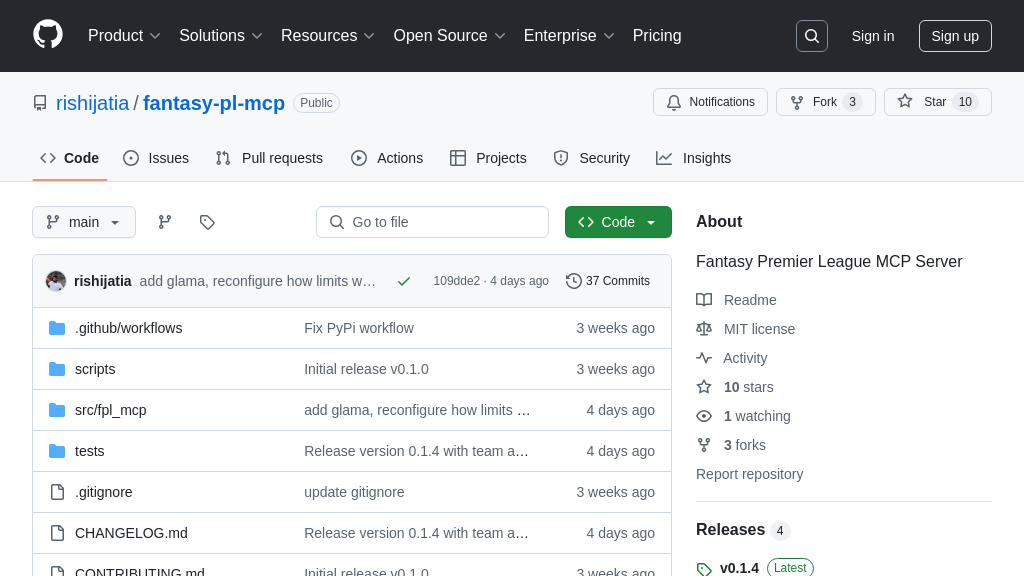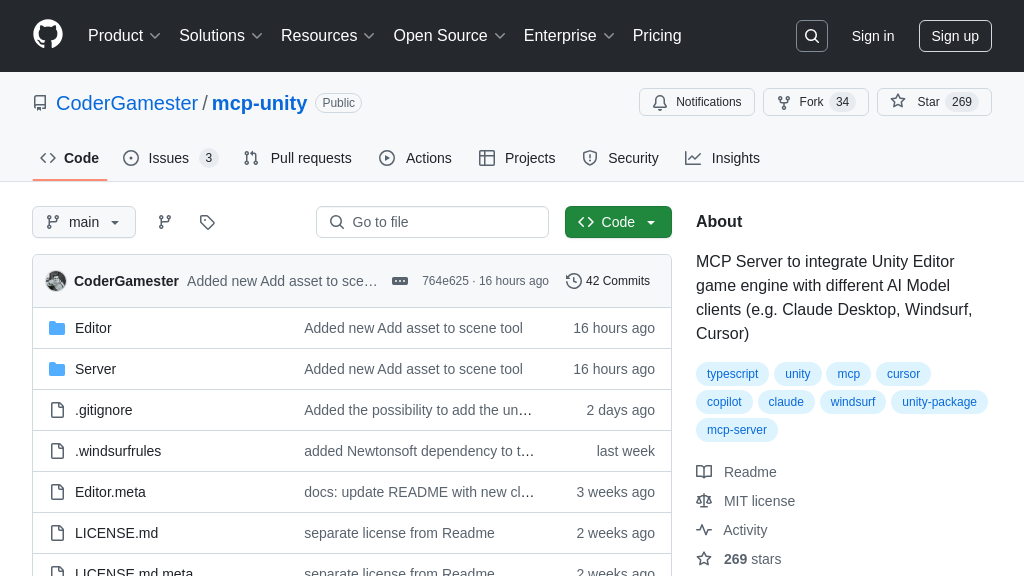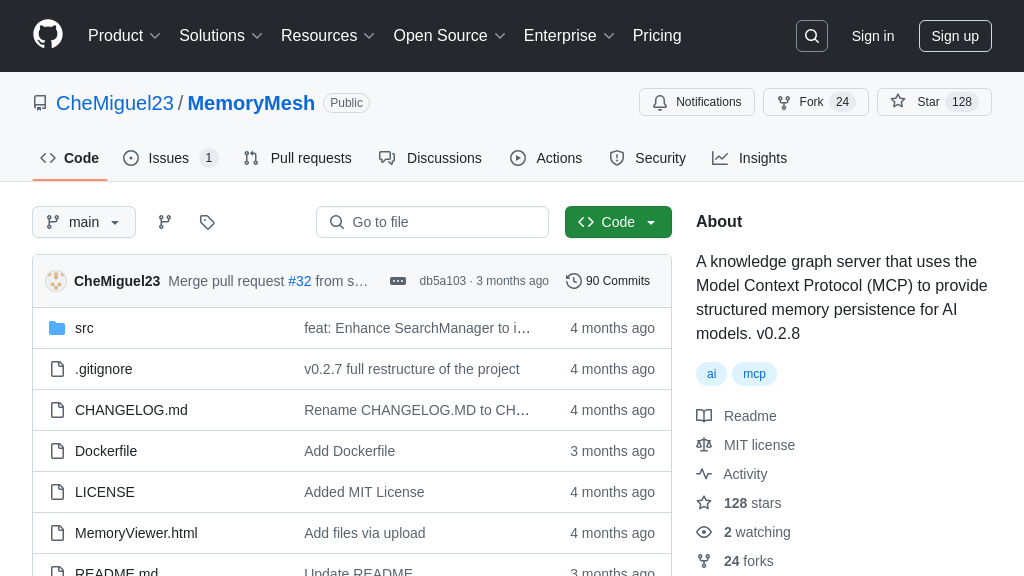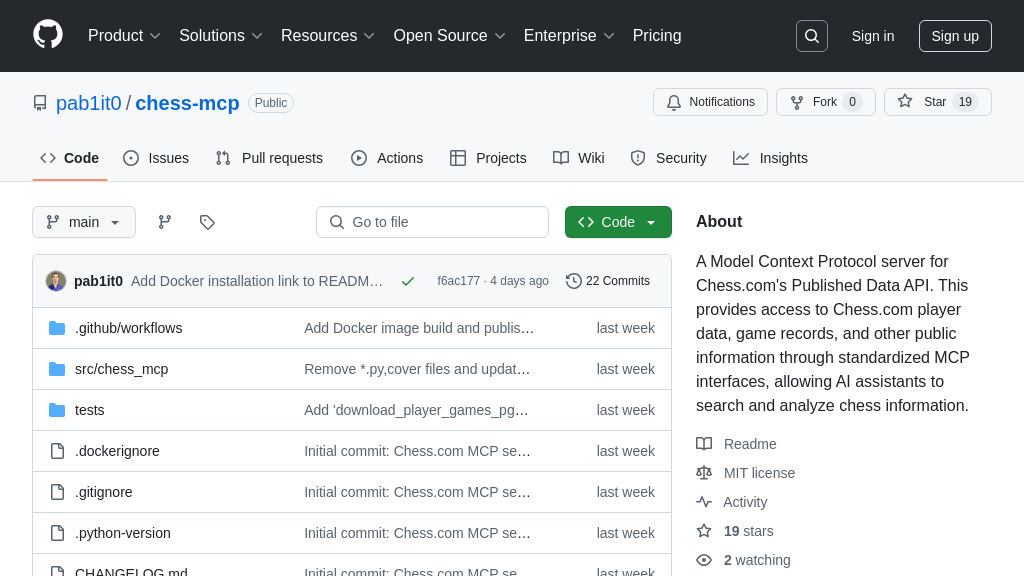godot-mcp
Godot MCP: AI-powered Godot game development via standardized MCP server for editor control and debugging.
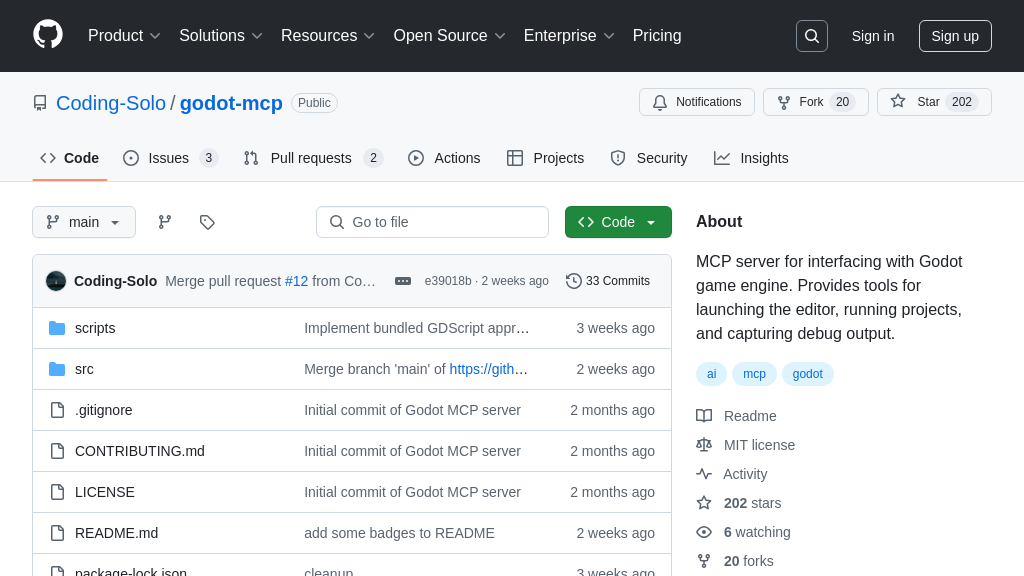
godot-mcp Solution Overview
Godot MCP is a server designed to connect AI assistants with the Godot game engine, enabling a new level of AI-driven game development. As an MCP server, it allows AI models to launch the Godot editor, execute projects in debug mode, capture debug output, and control project execution through a standardized interface.
This solution provides a direct feedback loop, allowing AI to understand the results of its actions within real Godot projects. Key features include scene management (creating, adding nodes, loading sprites), project analysis, and UID management for Godot 4.4+. By using Godot's CLI and a bundled GDScript approach, Godot MCP simplifies complex operations, offering improved error handling and maintainability.
Developers benefit from enhanced code generation, debugging assistance, and the ability to automate various game development tasks. Integrating Godot MCP empowers AI assistants to understand what works and what doesn't in Godot, leading to more effective and efficient game creation.
godot-mcp Key Capabilities
Editor & Project Control
Godot-MCP empowers AI assistants to directly interact with the Godot game engine, enabling them to launch the Godot editor for specific projects and programmatically run these projects in debug mode. This functionality provides a crucial bridge between AI-driven code generation and the actual game environment. By launching the editor, the AI can visually inspect the project structure and assets. Running the project allows the AI to observe the game's behavior and identify potential issues or areas for improvement. This direct control over the editor and project execution allows for a rapid iteration cycle, where the AI can generate code, test it within Godot, and refine it based on the observed results. For example, an AI could be instructed to "Launch the Godot editor for my platformer project" or "Run my Godot project and show me any errors." This feature leverages Godot's command-line interface for editor launching and project execution.
Debug Output Capture
A key feature of godot-mcp is its ability to capture debug output from running Godot projects. This includes console output, error messages, and any other relevant information generated during the game's execution. This captured output is then relayed back to the AI assistant, providing valuable insights into the project's behavior and potential problems. By analyzing the debug output, the AI can identify errors, warnings, and performance bottlenecks, and then suggest solutions or automatically implement fixes. This feature is particularly useful for debugging complex game logic or identifying issues that are not immediately apparent from visual inspection. For instance, if a game crashes due to a null pointer exception, the AI can capture the error message and pinpoint the exact line of code causing the crash. This feature relies on Godot's ability to redirect console output to a stream that can be captured by the MCP server.
Scene & Node Management
Godot-MCP facilitates dynamic scene and node management within Godot projects. AI assistants can use this functionality to create new scenes with specified root node types, add nodes to existing scenes with customizable properties, and even load sprites and textures into Sprite2D nodes. This allows the AI to programmatically construct and modify game levels, characters, and other game elements. The ability to create and manipulate scenes and nodes opens up possibilities for AI-driven level design, automated content creation, and dynamic game adaptation. For example, an AI could be instructed to "Create a new scene with a Player node in my Godot project" or "Add a Sprite2D node to my player scene and load the character texture." This complex functionality is implemented using a bundled GDScript (godot_operations.gd) that accepts operation types and parameters as JSON, enabling flexible and dynamic scene manipulation.
Bundled GDScript Operations
Godot-MCP employs a unique architecture that leverages a bundled GDScript file (godot_operations.gd) for complex operations. Instead of generating temporary script files for each operation, all Godot operations are centralized within this single file. This approach offers several advantages, including eliminating the need for temporary files, simplifying the codebase, improving maintainability, providing consistent error reporting, and reducing file I/O overhead. The bundled script accepts operation types and parameters as JSON, allowing for flexible and dynamic operation execution without generating temporary files for each operation. This design choice streamlines the interaction with the Godot engine and enhances the overall performance and stability of the MCP server. This is particularly important for complex tasks like scene creation and node manipulation, where numerous operations might be required.
